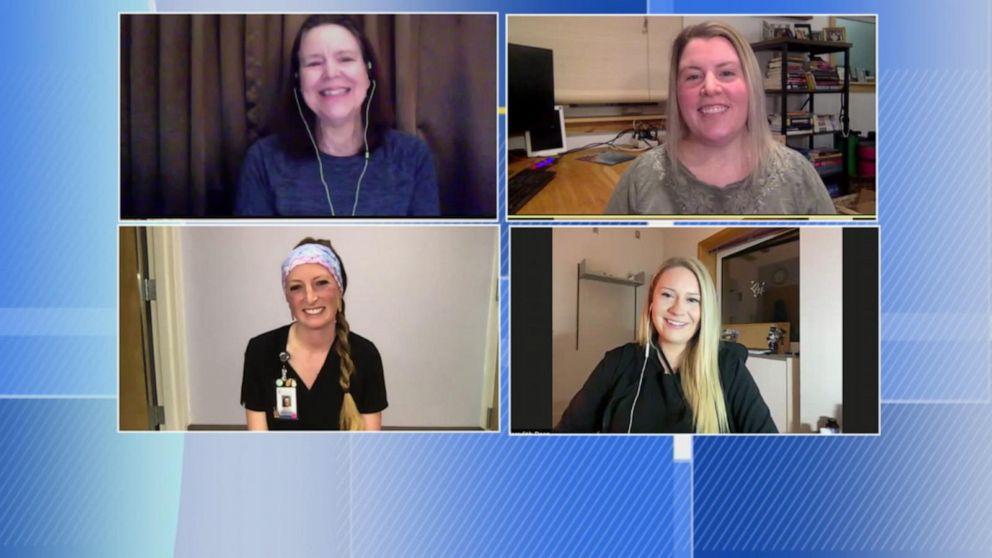
Team of Alaskan nurses hop on snowmobiles and sleds to deliver COVID-19 vaccines
By Mustafa GatollariJan. 16 2021, Updated 9:53 a.m. ET
The production of the COVID-19 vaccine was fast-tracked since the onset of the pandemic under the final year of Trump's administration and even though there are delays in getting vaccinations delivered to individuals across the country, there are healthcare workers going to extreme lengths in order to deliver these potentially life-saving injections to people in areas that are off-the-beaten-path.
NY State Governor Andrew Cuomo has faced harsh criticism for delays in getting the COVID-19 vaccine out to essential workers in a timely fashion. According to Fortune, only 34% of vaccines delivered to NYC, for example, have been delivered, which many are calling an abject failure considering the sheer volume of individuals and working professionals living in a close-quarters major metropolitan city.
The vaccine registration distribution system has come under fire in NY's failing to deliver injections in a timely fashion and while those problems have yet to be sorted out, there are other areas of the country that are facing obstacles of their own. Like residents of rural Alaska who are currently living in harsh winter conditions making air and automobile transportation of the vaccine impossible.

So a group of healthcare workers: two nurses, a pharmacist, and a medical doctor decided to saddle up on a snowmobile and sleigh with vaccines in tow to get these life-saving vaccines to folks in parts of rural Alaska. With just a few hours left of sunlight in the day, the four women rushed to get the medication off of a "bush plane" to a village.
They took a snowmobile and sled to the location, and then, a local villager pulled them the rest of the way in order to get the injections to elders who awaited their arrival. Meredith Dean, a 25-year-old pharmacist talked about the experience with Good Morning America: "It’s challenging getting the vaccine up here to begin with and then getting it out to the villages brings on a whole new set of challenges and logistical issues. Time is of the utmost importance," she said.
Doctor Katrine Bengaard had to wrap the vaccines up in an envelope and cradle it close to her chest underneath her coat, or else it would freeze when exposed to the elements. She rode on a snowmobile to make home visits to senior citizens who were immobilized by the snow and cold.
"We did the best we could, we had to kind of come up with it in the moment," Dr. Bengaard said.
She went on to say that she helped inoculate a 92-year-old village elder who relayed to them horror stories about the 1918 Spanish Flu that her parents lived through which claimed the lives of so many natives of Alaska.
"It was very important for her family that she be vaccinated so that she be given a better chance for this pandemic. The 1918 flu was really devastating to some of the communities up here and it was just wonderful to be able to offer that to her."
After hundreds of miles and braving the ice and snow, the four women managed to vaccinate 65 elders in key locations all over Alaska. It was a monumental coordinating effort. "We got to go from car to commercial airline, got picked up in a Sno-Go with a sled behind it, then we got on charter air, then we got picked up by a four-wheeler with a little trailer behind it, more Sno-Go, more sled," said nurse James Austin.
"It’s actually more navigable out here in the winter than it is in the summer because you can travel on the tundra and all the water turns to navigable ice."
What made the entire venture an enjoyable experience, according to Dr. Bengaard is that each and every one of them was willing to do whatever was necessary to get these vaccinations to the people that needed them most.
"We made it work and we had a really good time together. We were all willing to crawl around trying to get into this tiny little plane. We were all willing to do what we needed to do."
And they don't have any plans of stopping, either. The four of them will continue to deliver vaccinations to people in the area, no matter what it takes. "It's just such an incredible opportunity to work with them. It was definitely an impactful and powerful moment to realize that we've all braved quite a bit to get there and provide care," Dean said.
